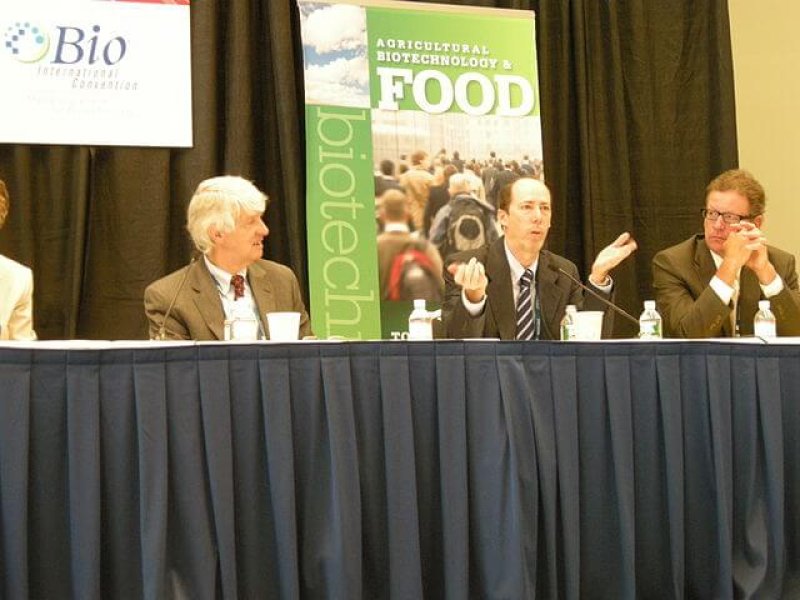Jack Bobo, chief of Biotechnology and Textile Trade Policy and senior advisor for biotechnology in the Department of State’s Bureau of Economic and Business Affairs, writes in the U.S. Department of State Official Blog:
Most of us, unless you’re hungry or there are people protesting or looting in your streets, underestimate the importance of a stable and safe food supply to our society and our standard of living.
With the global population expected to reach nine billion in less than 40 years, the sustainable production of agriculture will be increasingly on the minds of governments, private industry, and even many consumers. Not only do we have to increase the amount of food available, we have to find ways to minimize its footprint on the planet. There is no activity that humankind engages in that has a bigger impact on the planet than agriculture. This is true in terms of impacts on land and water resources as well as in terms of greenhouse gas emissions.
Therefore one of the great challenges that confront all of us in the next 40 years is to figure out how to maximize the production of food while minimizing the negatives consequences of agriculture — from polluted waterways to disappearing rainforests.
We need the best ideas from organic and ecological food systems combined with modern advances in molecular breeding and genetics if we are to address this pressing challenge and sustainably feed a growing planet. I will be the first to admit that science doesn’t always get it right. It’s also true, however, that you can’t get it right without science.
We owe it to coming generations to use every tool available, from organic production to biotechnology, to increase the quantity and quality of food while minimizing the footprint of agriculture. This will require the attention and effort of all of us. Our lives and the lives of our children depend on it. And, if we’re successful, agriculture just might save the planet.
Read the full, original article: Can agriculture save the planet before it destroys it?































